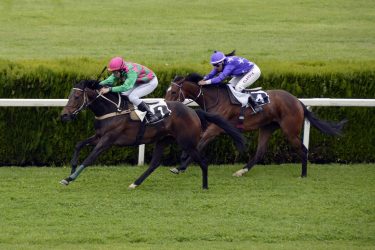 New Zealand’s Racing Industry Transition Agency (RITA) will cut 230 jobs, including 150 permanent staff, at the Totalisator Agency Board (TAB) as a result of the disruption caused by novel coronavirus (Covid-19).
New Zealand’s Racing Industry Transition Agency (RITA) will cut 230 jobs, including 150 permanent staff, at the Totalisator Agency Board (TAB) as a result of the disruption caused by novel coronavirus (Covid-19).RITA said the cuts, which apply to 30% of all TAB staff, should provide annual cost savings of more than NZD$11m (£5.5m/€6.2m/$6.8m).
The news comes after RITA conducted a consultation over a number of proposed changes to the TAB, including layoffs.
RITA said it had “no alternative” to the layoffs, pointing out that TAB monthly revenue was almost 50% below forecasts, and customer numbers down more than 35%.
“There are incredibly talented, experienced and committed people at the TAB who have delivered so much to our customers and the wider racing industry over many years,” McKenzie said. “We will be very sorry to see them go.
Because of the cuts, many services offered by the TAB have been suspended or reduced. The Trackside Radio channel will not resume broadcasting after being suspended alongside racing in March. In addition, trackside television broadcasts will operate with a reduced number of cameras and presenters, who will appear from a studio rather than on-course, with the exception of marquee race meets.
The Phonebet telephone betting service – where customers spoke to Phonebet staff to place a bet – has also been suspended, but the automated TouchTone telephone betting service remains.
The TAB will also offer fewer manual on-course betting facilities, and instead increase the number of self-service betting terminals it operates at racecourses. In addition, it said it will look to “increase customer awareness” of its online products.
Four retail TAB branches in New Zealand will also close.
RITA will also conduct an independent review of the structure of TAB’s executive leadership team. A consultation on any proposed changes is expected to start next week.
“We have had to make some tough decisions as we focus on the essential parts of our business that generate the funding required to keep the racing industry and many National Sporting Organisations running,” McKenzie said.
“The implication of Covid-19 has extended beyond the immediate impact to the TAB, with racing and sport continuing to look unpredictable over the next year. The reality is these changes will help the TAB to be a leaner, more efficient business and focused on driving our core wagering and gaming offering to our customers.”
Earlier this month, RITA welcomed a new NZD$72.5m (£35.4m/€40.0m/US$43.2m) support package from the country’s government. Despite this financial injection, RITA executive director Dean McKenzie warned that the industry would still have to continue to implement cost-cutting measures in order to ensure long-term sustainability.
Earlier this month, RITA confirmed the transitional calendar for the remainder of the 2019-20 season, which had been postponed due to the coronavirus outbreak.
Harness racing in New Zealand is set to return on 29 March and thoroughbred racing from July, while greyhound racing returned behind closed doors earlier this week.












